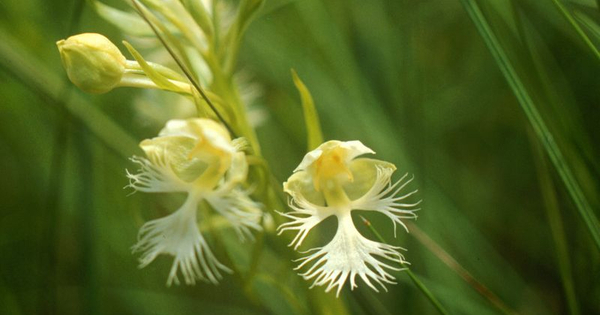Climate changes, including both warming and cooling phases, have historically shaped the evolution and distribution of species, including orchids. Orchids are a complex collection of plants whose distribution and evolution are impacted by a variety of factors such as climate, geography, and ecological interactions.
According to research, a global cooling of the temperature ten million years ago resulted in an explosion of diversity in terrestrial orchids. The Milner Centre for Evolution at the University of Bath has discovered that global cooling of the temperature appears to be the key driving factor in the diversity of terrestrial orchid species. The findings aid scientists in understanding the effect of global temperature on species variety and how our current changing global climate may affect biodiversity in the future.
Orchids are one of the world’s largest plant groups, with over 28,000 species growing worldwide. Why are there so many kinds of these plants? They are recognised for their large range of different sized and shaped flowers.
Our biogeographic analysis revealed consistent effects of climate change on speciation across the Earth. However, we were startled to discover that places with high diversity do not generally have high speciation rates.
Dr. Nick Priest
Climate change driving speciation
Charles Darwin investigated orchids as a paradigm for natural selection, claiming that they gradually evolved an array of various flowers to attract specific pollinators over time. However, researchers at the Universities of Bath and York discovered that rather than evolving gradually over thousands of years, these plants diversified quite quickly due to fluctuations in global temperature.
They created a family tree demonstrating species relationships by analysing hundreds of DNA sequences, then used statistical models to explore how variations in climate during Earth’s history may have triggered the emergence of new species. They then used more than 2.5 million geographical distribution records to test the various models.
They found evidence that most of the species appeared during the last 10 million years, coinciding with global cooling, as calculated from geological records. Modelling the probability of different drivers of speciation suggested that global cooling is 700 times more likely to influence speciation of orchids than time alone.

Everything, everywhere, all at once
Dr Jamie Thompson, first author of the paper and researcher at the Milner Centre for Evolution at the University of Bath, said: “Darwin proposed that orchids adapted gradually through natural selection to attract different pollinators, but our data show that it’s more complicated than that. There was an explosion of diversity in terrestrial orchids across the globe within the last 10 million years, with all the major lineages of these plants emerging at roughly the same time. We found this correlated with global climate change, so that more species emerged as the climate cooled, giving the first evidence of global cooling driving speciation in these plants.”
Speciation rate independent of diversity
The researchers also discovered that the pace of speciation (the rate at which new species emerge) was not affected by the number of species present to begin with.
“Our biogeographic analysis revealed consistent effects of climate change on speciation across the Earth,” stated Dr Nick Priest, Lecturer at the Milner Centre for Evolution and senior author of the paper. However, we were startled to discover that places with high diversity do not generally have high speciation rates. This has ramifications for conservation methods, as we can’t rely on keeping a few small pockets of land to protect evolutionary diversity; we need to save everything we can.”
“What we want to look into next in all flowering plants is whether temperature has a simple effect or if there is a threshold that must be crossed before there is a surge in speciation.” We also want to forecast how rising temperatures caused by global climate change would affect the processes that generate plant biodiversity.”
“Our findings also show the importance of considering evolution over geological time scales,” said Dr Katie Davis, Lecturer in Palaeobiology at the University of York. Understanding how animals evolve in response to global environmental change has crucial conservation implications, which we can only learn by studying the deep evolutionary history.”
















